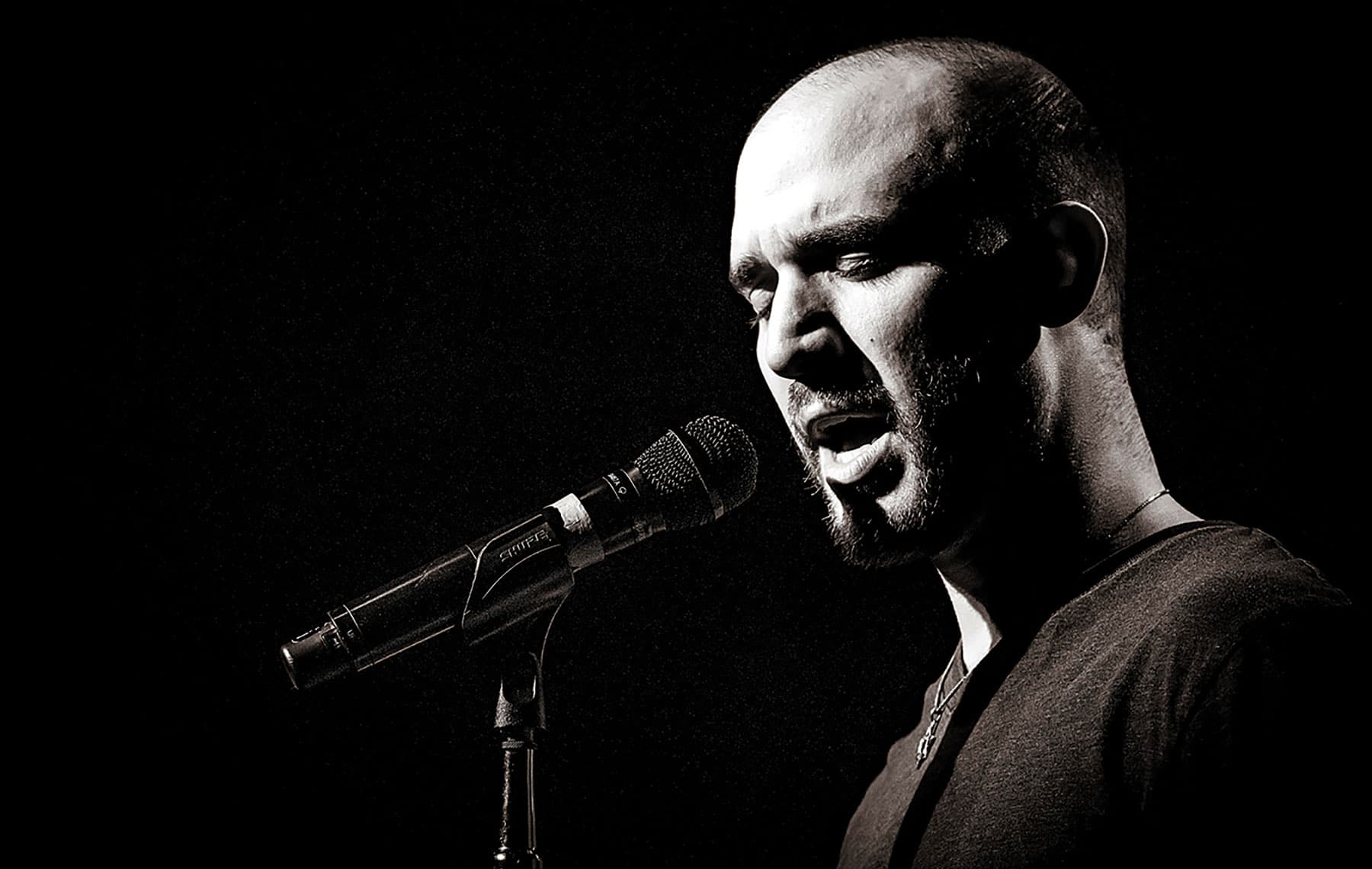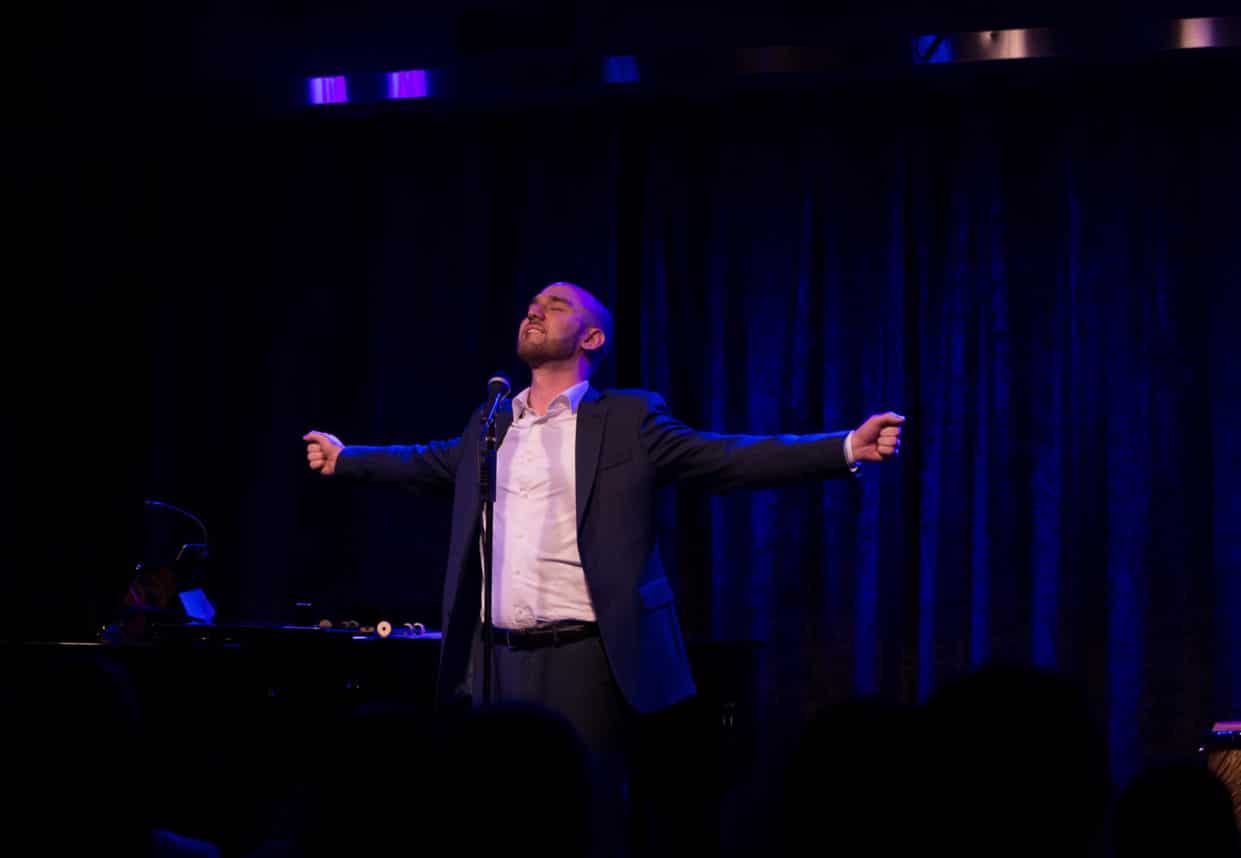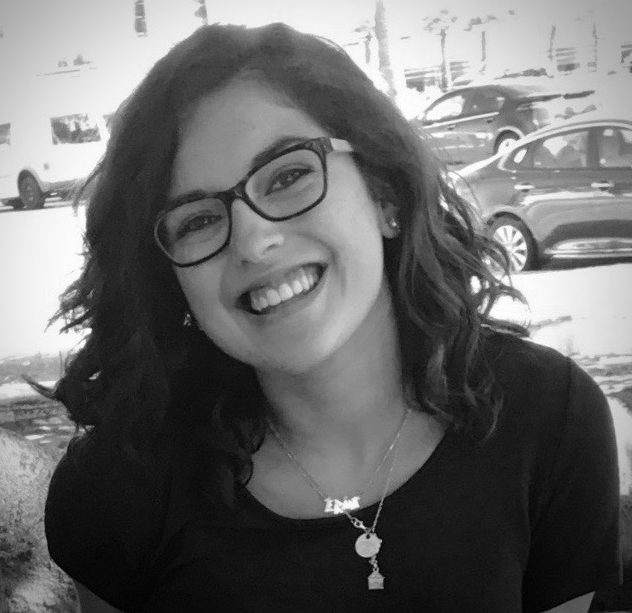
Quoting cabaret pianist and composer Dick Gallagher, Ari Axelrod believes “cabaret is the art of being yourself on purpose.” The 26-year-old has combined his passion for musical theater and cabaret, and last month took his cabaret “A Celebration of Jewish Broadway” to Zoom.
The Journal spoke with Axelrod via Zoom about his four-week masterclass “Bridging the Gap,” which focuses on connecting cabaret and musical theater performance, and the importance of sharing intimate art with the world.
Jewish Journal: Do you remember the first song you ever performed?
Ari Axelrod: Oh, my God, no, I don’t. I think it was probably “Somewhere Over the Rainbow” at a middle school talent show.
JJ: What drew you to musical theater?
AA: I was bullied a lot in my high school. I really didn’t like going, so I started skipping school. Instead, [I] was driving around town [in] Ann Arbor [Mich.] in my Honda Odyssey 2002 minivan and I would play the Broadway satellite radio station [on] SiriusXM for hours. … It was one of the first times, and frankly one of the only times, I felt I was understood, and there were people that saw me.
JJ: And cabaret?
AA: I had brain surgery the summer after my junior year of college [at Webster Conservatory] and I recovered much faster than anyone anticipated, so I had all this free time. One of my faculty members [mentioned] the St. Louis Cabaret Conference. I didn’t know what cabaret was. I thought it was like Joel Grey and Liza Minnelli, Cher and Christina Aguilera. I thought it was Burlesque. I was surrounded by titans of the industry and those 10 days completely changed my life.
JJ: Is that what inspired you to start “Bridging the Gap”?
AA: Yeah. I saw it as an opportunity to really step into yourself and use all of this musical theater stuff and other genres of music and really make it my own. It was beautiful, it was selfless, it was generous, it was a gift to the audience. I realized there is nowhere in New York specifically for young professional theater actors to learn what cabaret is. I started this company [to bridge] the gap between musical theater and cabaret and also bridge the gap between the singer and the song because there’s no character. That gap is really hard and scary if you don’t have the tools to do it and you don’t feel empowered to do it. [In] two years, I’ve had more than 50 clients and done showcases at 54 Below and Birdland [Jazz Club.]

JJ: How did “A Celebration of Jewish Broadway” come about?
AA: I had already done a solo cabaret and taken it around the country. Then Marty Shichtman, the [director of the Center for] Jewish Studies at Eastern Michigan [University], came to New York with a group of students [studying] Judaism and theater. He said, “You know, you should do a show about Jewish influence on musical theater,” and I said, “No one’s going to come!”
He said to come to Eastern Michigan in October [2018] and we’ll do a show about Jewish influence in musical theater. Two hundred and fifty people came. The next day, I sent an email to the manager at Birdland in New York, and he said, “Yeah, let’s do it.” I did it three times at Birdland, sold out each time. The last time, I had Tovah Feldshuh as a guest performer. Then it really picked up, so I brought it to Chicago twice, St. Louis twice, Boca [Raton, Fla.] twice. It still shocks me when it is received so positively. I’m not used to that.
JJ: Why is it important to showcase these Jewish contributions?
AA: Anti-Semitism is on the rise. At the same time in the world of musical theater, people are saying New York musicals are by a bunch of old white men. Yes, they were white, but to completely negate that they were Jews — many of whom were Jewish immigrants or children of Jewish immigrants — feels like revisionist history and also erasure.
I looked at the curriculum that I had in college and I realized there was no talk about the Jewish influence, which doesn’t make sense. What better way to combat anti-Semitism than by showcasing the contributions that Jews have [made], not only [to] the American musical, but I talk about how Carole King was Jewish. I talk about how “God Bless America” was inspired by the Amidah. Any anti-Semite who gets up and sings “God Bless America,” that is a song written by a Russian Jewish immigrant.
JJ: What is it like performing “Jewish Broadway” virtually?
AA: People have been saying that cabaret has been dying for decades. What an amazing time to think about what it would look like in today’s current climate. I could literally see and talk to people [on Zoom], and the only thing that was really bizarre was that there was no applause. But I could still see people [waving their hands]. What was really cool was being able to do the show for people all over the world at the same time.
https://www.youtube.com/watch?v=Oojc2tmIq54
JJ: Is that why you think it’s so important to share art right now?
AA: I heard a lot of people say that now is not the time for artists. Now is the time for us to sit back and it’s actually time for essential workers. Yes, it is their time, but it is also our time. To the people who are fighting to survive right now from COVID in hospitals, if we stopped creating, what world would they have to fight to come back to? What would their lives be in a world with no new art?
Also, with the social injustice [and] Black Lives Matter movement right now, I’ve seen artists who benefit from white privilege open up their platforms to BIPOC (black, indigenous and people of color), and Black artists sharing their art. It’s a great opportunity to pass on the mic and create equity in this industry. To quote Leonard Bernstein, “This will be our reply to violence: to make music more intensely, more beautifully, more devotedly than ever before.”
Learn more about Ari Alexrod here.





















 More news and opinions than at a Shabbat dinner, right in your inbox.
More news and opinions than at a Shabbat dinner, right in your inbox.